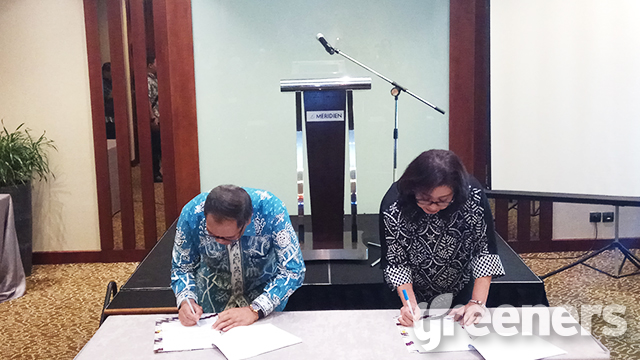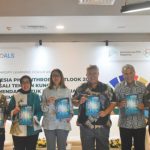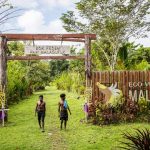Jakarta (Greeners) – Ministry of Environment and Forestry signed a Memorandum of Understanding and an agreement for integrated waste management program with six districts and cities in Citarum watershed as part to support Citarum Bersih program, which will comprise of people based waste management, education, and waste management campaign.
Based on presidential regulation issued in 2018 on Citarum Watershed Pollution and Damage Control Acceleration, the ministry is stated as one of the team to prevent, control pollution and damages, and restore the watershed will integrate program and activities with other ministries or agencies, including personnel and operational equipment.
“This will be [handled] under Waste, Toxic, and Hazardous Waste management for waste management. We also support in relation to set up integrated waste management through waste management facilities involving people living in Citarum watersheds,” said Rosa Vivien Ratnawati, director general of waste management, in Jakarta on Friday (03/08/2018).
READ ALSO: KLHK Allocates 12 billion for Citarum River Waste Management
On waste management, Ratnawati said that people need to be involved as main source of waste producer, especially those living in river banks. Based on national waste profile, household contributes to 36 percent of waste volume.
“There are 13 districts/cities which will be assisted to set up their waste management facilities. The plans will be developed in stages. For 2018, the ministry will develop waste management facilities in six cities and districts, — cities of Bandung and Cimahi, West Bandung and Karawang districts, and city of Bekasi,” she said.
READ ALSO: Circular Economy, An Effort to Get People to Waste Sorting
The integrated waste management will include recycle center (PDU), Central Waste Bank (BSI), local waste processing (TOSS), waste sorting, waste motor, education or promotion.
“By developing all of those waste management facilities, it is expected that waste volume in Citarum watershed, organic and non-organic, can be managed. We will get people to be involved in waste management by sorting from the source and transferring them to waste processing facilities,” she said.
Household waste has potential to pollute environment, including watershed, if not properly managed. To support waste management, people needs to be encouraged to do the waste sorting.
“Citarum watershed pollution and damage is a lesson learned to us all to consider Citarum watershed as ecosystem which needs to be protected for the next generation,” she said.
Reports by Dewi Purningsih



















































